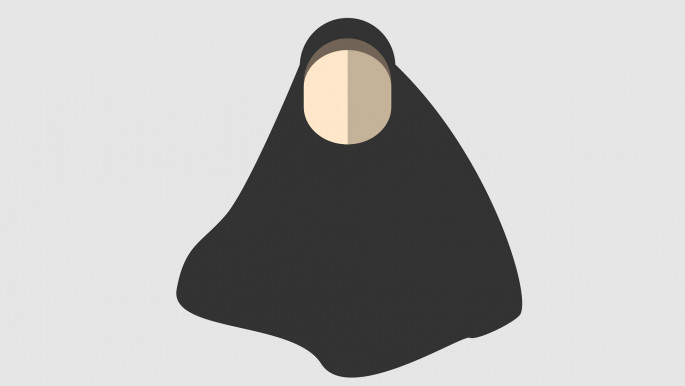Islamophobia is holding Muslim women back in the workplace. Employers should be doing more
As a Muslim woman, HR Advisor Mayah avoids drinking establishments like bars, pubs and clubs. Unfortunately, these are the types of places that her colleagues prefer to socialise in.
"I enjoy my job and have a great rapport with my colleagues," she explains. "But I struggle to network and socialise with them outside of work because there is a heavy drinking culture in my industry."
Unfortunately, stories like Mayah's are increasingly common in the workplace. Dr Suriyah Bi, a lecturer at SOAS university, spent eighteen months researching Muslim women in the workplace.
Her report, titled Empowered Employment: Unlocking the Workplace for British Muslim Women, found that through external factors, this minority group were not excelling in their careers.
 |
|
| Read more: Muslim women writers who are changing the narrative one book at a time |
Key findings included:
• 84.2 percent of British Muslim women were actively engaged in the labour market and contributing to the economy, suggesting that Muslim women are highly competent and skilled.
• A major challenge to work and career development was a lack of confidence which 54.3 percent of participants selected.
• 47.2 percent of women stated they had encountered Islamophobia and discrimination as a challenge in the workplace.
• 33.9 percent of participants stated that family and partner expectations were barriers to their career development.
Islamophobia or unconscious bias?
Most shockingly, nearly half of the respondents in Dr Suriyah's study claimed that they had dealt with some form of Islamophobia or discrimination at work.
A solution, outlined in the report, to removing this bias is to urge employers to adopt 'name-blind' application processes where names of participants are anonymised. However, getting past the face to face interview still remains an obstacle for some Muslim women.
"I had a phone interview once, '' Civil Servant Afsana Ahmed recalls. "They sounded happy with me but as soon as I arrived at the face-to-face interview they became very quiet and awkward. I don't think they were expecting a hijab-wearing Muslim woman to walk through the door."
Climbing the career ladder has also been a struggle for Afsana: "Smaller support roles were easy to land, but to get anything higher has been extremely difficult. Even though the interview would go great there was always a reason why I didn't get the job."
Writer *Layla also experienced discrimination when she tried to break into the media industry.
"When I was younger I did a lot of temp work as editorial or publishing assistant, but when these jobs became vacant, rather than offer me the position, or at least invite me to apply for it, they gave it to other people - all white women. One actually gave a maternity cover job that I'd held for a year to the receptionist - that hurt."
However, not all experiences have been negative. PR consultant, author and blogger, Halima Khatun enjoyed a varied career, working for the BBC and ITV before working her way up to more senior roles.
 |
Nearly half of Muslim women encounter Islamophobia and discrimination at work |  |
"I enjoyed a lot of success in my twenties" she explains, "I received promotions, quickly went up the ladder and was paid accordingly. I never felt that my religion was a hindrance."
Social Media Manager Safeera also escaped Islamophobia and discrimination at work, but believes that the bias against her was a lot more subtle.
"Whether it's conscious or unconscious bias, I've definitely been overlooked when it comes to progression into roles that I have significant experience for," she explains.
"It's hurtful but the sad reality is that discrimination isn't a physical thing; it's a lived experience which is so often denied by the perpetrators and swept under the rug. As a Muslim woman you will always have to work ten times harder to get to where you want to be, which is sad, but it makes you more resilient as an individual."
Feeling disillusioned by the lack of opportunities in the media, Layla decided to pivot into a corporate job, and the risk paid off.
"I now work for a company which is proud of its diverse workforce, in fact it actively encourages it to thrive and rewards hard work. We have a prayer room in the building and I have the flexibility to work from home two days a week, which I'm grateful for, especially during Ramadan.
"I'm the only Muslim in my team and nobody makes an issue out of it. I am treated fairly and equally, and respected for my work, and valued as a colleague."
 |
|
| It's time to read about the untold history of revolutionary Muslim women |
Drinking culture
Dr Suriyah's research also found that a major obstacle highlighted in the workplace was the alcohol culture, which dominated networking events in particular.
Like Mayah, Afsana also struggled with after-work events that usually centred around the pub. She tells The New Arab: "although my current employers are very inclusive I still feel a bit left out, especially when they all go to the pub".
Despite enjoying success in her career Halima agrees that the social side of working in the corporate industry was a downside: "I was always invariably the only Muslim person in the room. The social side, which mainly revolves around alcohol, was tricky as I don't drink" she tells The New Arab.
"I'd find corporate away days/overnights awkward to navigate as I was always the only sober one! So I would compensate by working harder."
Layla also agrees that the social aspect of working in media, especially going out for a drink, might have hindered her chances of progressing further.
"You're deemed boring because you don't drink" she says.
"I've felt excluded from the cliquey gatherings and I suspect that's been an obstacle in climbing the ladder but looking back, things happen for a reason and I'm glad to be where I am today."
The solution is simple, according to Dr Suriyah: "Workplaces need to instil a culture where it is acceptable to network over non-alcoholic beverages".
 |
Whether it's conscious or unconscious bias, I've definitely been overlooked when it comes to progression into roles that I have significant experience for -Safeera |
 |
She goes on to recommend alternatives to bars and pubs: "Employers and workplaces could hold networking events and meetings where soft drinks and coffees are served. If such events take place outside the workplace that they be held at coffee shops and/or alcohol-free restaurants."
A stronger support system
Although there is still much more that employers and organisations can do to accommodate their Muslim employees, there also needs to be a shift in the Muslim community's attitudes towards women going into the workforce.
Dr Suriyah found in her study that 33.9 percent of participants stated that family and partner expectations were barriers to their career development.
Participants also expressed that lack of flexible working hours and/or ability to work from home, child care costs, and the lack of suitability of their chosen professions led to incompatibility with marriage and motherhood.
"The wider Muslim community has to embrace aspects of corporate working life" says Halima. "It's important for a Muslim woman to feel that her religion isn't a barrier to entry. So being able to partake in some socials (minus the alcohol) is important. Likewise, the workplace must make them feel comfortable. There has to be a meeting in the middle."
Safeera also believes that more can be done within the community to encourage the career progression of Muslim women.
"There has to be give and take on both sides," she says. "I think the wider community who are set in their ways have to understand that the way of life here is different to say, back home."
"That doesn't mean abandoning your values, it simply means compromising and meeting other communities half way."
Sami Rahman is a freelance lifestyle writer based in London.
Follow her on Twitter: @bysamirahman





 Follow the Middle East's top stories in English at The New Arab on Google News
Follow the Middle East's top stories in English at The New Arab on Google News


